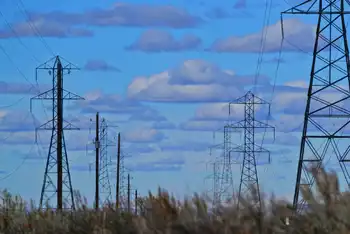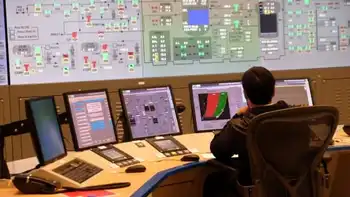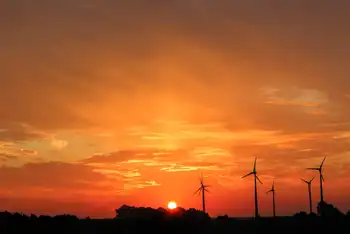Wind, coal proposal advocates square off
By Wilmington News Journal
Protective Relay Training - Basic
Our customized live online or in‑person group training can be delivered to your staff at your location.

- Live Online
- 12 hours Instructor-led
- Group Training Available
About 150 people turned out for the recent state-sponsored session at the Georgetown campus of Delaware Technical & Community College. Four state agencies convened the meeting while evaluating three proposals for plants ranging in size from 177 megawatts to 600 megawatts.
State lawmakers ordered Delmarva Power to seek new, reliable in-state electric supplies for its standard-offer customers last year after public complaints about rate hikes that followed deregulation in 1999.
Bids included Conectiv's proposal for a 177-megawatt, mostly natural gas-fired plant to meet peak needs; Bluewater Wind LLC's offer of a 200-turbine windmill farm off the Atlantic Coast and NRG Energy's proposal for a 600-megawatt plant that would burn synthetic, natural gas-like fuel made from coal.
"I don't think that Sussex County should be asked to bear an additional burden" of pollution from NRG's Indian River plant near Millsboro to provide power to the region, said Pat Frey, a Dagsboro-area resident. Frey, who supports Bluewater's plan, said that failure to consider health effects from new fossil fuel plants "is not only faulty economics, I personally think it's immoral."
But David Walsh, director of the Delaware Building & Trades Council, accused "academics and activists" of distorting accounts about emissions and risks associated with NRG's proposal, and said the project would assure the region good jobs during construction and operation. "Our working families do not have the luxury of advocating a pipe dream," Walsh said.
Other labor group members and NRG employees challenged claims that Bluewater Wind could provide reliable power from its proposed 30-square-mile wind farm, predicting that wind supplies would dip when demand surges to summertime highs.
A state consultant ranked Conectiv's offer highest; Delmarva Power called for rejecting all the bids. Citizen, labor, environment and business groups, meanwhile, mostly sparred over the NRG and Bluewater offer. A tentative recommendation is due in May from a panel that includes the Public Service Commission, Office of Management and Budget, Department of Natural Resources and Environmental Control and the Legislature's Controller General's office. Public Service Commission Executive Director Bruce Burcat said additional public meetings are planned after reports on Delmarva Power's long-range service plan are received April 4.
"As a survivor of cancer, I cannot afford to breathe in any more unpure air," said Richard Sciorra, a Lewes resident who supports the Bluewater plan.
NRG Indian River power plant manager Ron Wilkowsz said that the plant supports and is working to meet toughened air-pollution regulations. The new coal gasification plant would provide clean electricity, he said. "If you truly believe that any emissions are not acceptable, then you must have arrived here tonight by walking, riding a bike or riding a horse," Wilkowsz said.
The state's consultant found that Conectiv's plan had the best chance of succeeding, but would do little to stabilize local electricity prices. Bluewater's more than $1.5 billion wind-power plan could help to stabilize prices, but was considered to have an uncertain chance of getting financial backing. NRG's plant, ranked lowest, was viewed as expensive, with potentially higher costs as global pressure increases to reduce pollution that contributes to climate change.











